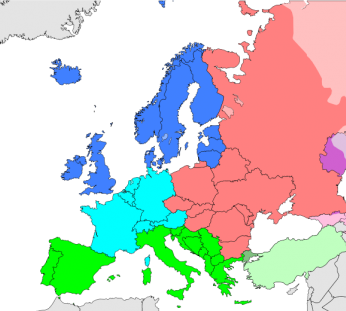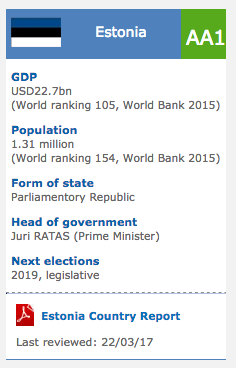Southern Europe
-
Italy Current Account Surplus Grows In June
Italy's current account surplus increased in June from a year ago, data from the Bank of Italy showed Friday.
The current account surplus climbed to EUR 5.26 billion in June from EUR 4.04 billion in the corresponding month last year.
The surplus on trade in goods fell to EUR 5.21 billion in June from EUR 5.38 billion in the same month of 2016. Similarly, services surplus shrank to EUR 551 million from EUR 661 million.
More > -
Portugal PPI Inflation Slows Further
Portugal's producer price inflation eased for the fourth consecutive month in July, figures from Statistics Portugal showed Friday.
Industrial producer prices climbed 2.2 % year-over-year in July, slower than the 2.8 % increase in June. The measure has been rising since December 2016.
More > -
Greece Current Account Surplus Falls In June
The Greece current account surplus declined in June from previous year, the Bank of Greece reported Monday.
The current account surplus fell to EUR 842.3 million from EUR 909.8 million the previous year.
The deficit on goods trade widened to EUR 1.43 billion from EUR 1.41 billion prior year. Meanwhile, the surplus on services rose to EUR 2.3 billion from EUR 2.1 billion in June 2016.
More >
- Key Facts
-
The term southern Europe, at different times, has had different meanings, providing additional political, linguistic and cultural context to the definition in addition to the typical geographical, phytogeographic or climatic approach. Most coastal countries in the United Nations-designated southern Europe border the Mediterranean Sea. Exceptions are Portugal which has only Atlantic coastline, Serbia and the Republic of Macedonia, which are landlocked, and Bulgaria, which borders the Black Sea.
-

Climate change laws around the world
2017/05/14There has been a 20-fold increase in the number of global climate change laws since 1997, according to the most comprehensive database of relevant policy and legislation.
The database, produced by the Grantham Research Institute on Climate Change and the Environment and the Sabin Center on Climate Change Law, includes more than 1,200 relevant policies across 164 countries, which account for 95% of global greenhouse gas emissions.
-

Brexit negotiations should treat energy as ‘special case’
2017/05/14There are strong practical reasons why the UK and EU should treat energy as a appropriate case during Brexit negotiations, argues a new statement.
The statement, jointly authored by Chatham Home, the University of Exeter and the UK Energy Research Centre (UKERC), says finding common ground on energy during the Brexit negotiations would benefit both the UK and remaining EU27, while compromise may be relatively easier to achieve than for other areas.
-
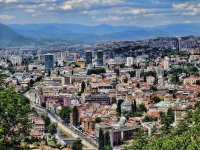
Bosnia and Herzegovina Subdued growth and structural weaknesses
2017/05/07Bosnia and Herzegovina
Subdued growth and structural weaknesses
-
Malta EU Presidency Ready to shake up the old continent
2017/04/19Malta EU Presidency promises international schedule aimed to refocus the European Project and showcase economic growth
The smallest member national of the EU began its six-month term as president of the Union this January, faced with challenges they plan to combat with their recent economic and policy-driven improvements. Malta is the second-best performing economy amongst its larger peers and an advocate of the EU, having received funding and completed success at applying EU directives. The country is comprised of almost 500,000 inhabitants, and is described as the essence of Mediterranean culture, due to its location and rich history that has made it an effective participant in the region over the years.
-
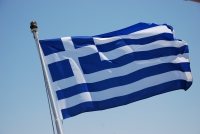
How the IMF Contributed to Destabilizing the Greek Economy
2016/11/23The Independent Evaluation Office (IEO) of the IMF recently published its statement on the response of the organization to the European crisis. The analysis focuses on the performance of the IMF in the context of the programs for Greece, Portugal and Ireland.
-

Italy's 21st Century Reformation Back in the driving seat
2016/10/09With renewed confidence, Italy is seeing the knock-on result of an ambitious reform schedule. The country is taking the lead to shape a new European vision and has emerged as a crucial diplomatic and geostrategic player in the Mediterranean region
The eighth biggest economy, the fifth most popular tourism destination, and the undisputed world capital of the three F’s (fashion, furniture and food), the Italian treasury is buoyed by an exceptional luxury manufacturing sector, and the major number of UNESCO heritage sites on the planet.
Hit hard by the Great Recession of 2008 which obliterated 6% of the country’s GDP, Italy is at last emerging from its longest economic crisis.
-

Ministry of Justice Italy’s judicial reform streamlines dispute resolution and raises investor confidence
2016/04/27Reduced numbers of trials clogging up courtrooms, the introduction of computerization into civil trial procedures, and the creation of specialized Business Courts to handle business-related disputes for foreign investors are part the transformational changes swept in to Italy’s judicial system in recent years.
Although still a work in evolution, the government’s efforts are paying off. In just one year, Italy has leapt 13 places in the World Bank’s Relieve of Doing Business rankings for settlements of commercial disputes. The quality of legal services has improved and foreign investors’ confidence in commercial operations in Italy is as well on the rise.
-

Digital Revolution IoT, innovation & information crucial to future quality of life
2016/04/27Adrio de Carolis is well known as Italy’s guru of the digital economy, confirmed back in 1999 at the same time as Forbes featured him on their front cover. The CEO of market research and digital poll pioneer SWG, Mr de Carolis explains the company’s knack for handling the huge all of data on the internet and its findings on Italy’s renewed confidence, inclunding providing an insight into the role of social media research and analysis SWG can provide in preventing terrorist threats.
-
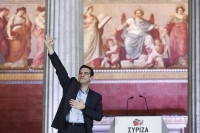
Leader_Syriza’s electoral win is a chance to strike a deal
2015/01/27The victory of far-left Syriza in last weekend’s Greek general election opens a dangerous new phase in the eurozone crisis. Its leader Alexis Tspiras has demanded an end to the “fiscal waterboarding” that in his view has left Greece trapped in a debtor’s prison. But the rest of Europe, and Germany in particular, have so far stood their ground. If no compromise can be found Greece risks being bundled out of the euro by the end of the year.
-
Claudio Costamagna, Chairman of Cassa Depositi e Prestiti (CDP)
2016/12/10Italy’s Cassa Depositi e Prestiti (CDP), the national promotional bank with a €400 billion budget, is on a mission to jump-start the Italian economy.
Essentially the country’s sovereign wealth fund, the CDP assists companies of all sizes—particularly corporations and companies involved in real estate and infrastructure—with venture capital funds and investing as a long-term partner.
Chaired by former Goldman Sachs investment banker Claudio Costamagna, the CDP is currently developing a Turnaround Fund to help companies that are still solid but are facing financial issues by intervening in their control and relaunching them with new management.
-

Custom Quality Glassware Venini adds another unique twist to glass making with a new partnership
2016/05/25Elegant, hand-made glassware and chandeliers steeped in history and tradition from ‘the Dior of lighting and vases’ is very much the forte of the renowned high quality glassmaker Venini. Partner of the highly respected family-run company Giulia Chimento provides a fascinating insight to its heritage, craft and evolution, and what’s next for the creative artisans.
-
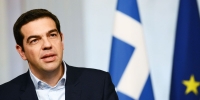
Greece: faith versus sustainability
2015/07/28Greece and the EU have faith that everything will work out in spite of the country's debt being a long way from sustainable. What does all that mean for the future?
-
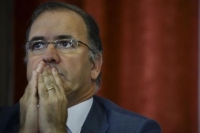
Portugal looking beyond tentative recovery
2014/03/02While Portugal has moved out of recession – just – its recovery seems tentative at best. Its economy minister, however, is optimistic about the country's next, and tells Silvia Pavoni that its strong exports to nations outside of the eurozone in particular point to better times ahead.
-
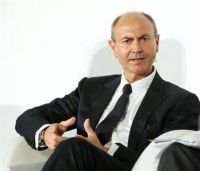
Versace CEO's billion-dollar plan
2013/07/21Gian Giacomo Ferraris used to be a schoolteacher. And if you want to learn how to double your turnover in the next three years, than the Versace CEO is someone you could learn from. Lesson one: confidence. “I think Versace deserves to double its turnover. So for the next five years our target will be to become a one billion dollar company,” he says.
A tall order, but Ferraris’ track record since taking the reins in 2009 suggest he may just be the man to pull it off. Despite Versace taking up its usual slot on the red carpet back in 2009, the iconic fashion brand was struggling behind the scenes with critical implications to its bottom line due to the economic crisis and the lack of a fixed strategy.
-
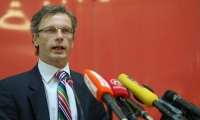
Boris Vujčić, Governor of the Croatian National Bank
2013/05/18In 2012, the banking sector remained stable. It is well-capitalised and resilient to external shocks. In addition, the national currency has remained strong over recent years, and inflation has remained at moderate levels. What strategies are you implementing to balance a stable exchange rate, low inflation and the need for economic increase?
-
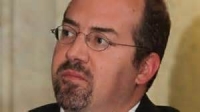
Portugal’s minister of economy, Álvaro Santos Pereira
2013/04/17Portugal started 2013 in a relatively hopeful mood. The country returned to the long-term deficit market for the prime time since being bailed out in 2011 with an offer that increased the size of an existing €6bn bond maturing in 2017. The additional money raised was €2.5bn, following request that was reportedly in excess of €12bn, mainly coming from foreign investors. Even additional hopeful was the cost of borrowing for the new funds, which was less than 5%.
-
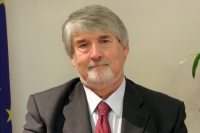
Ministry of Labor & Social Policy Jobs Act and ‘flexicurity’ revolutionize Italy’s labor market
2016/03/16An essential piece in the Italian government’s reform schedule is the Jobs Act. Minister of Labor and Social Policy, Giuliano Poletti highlights the changes introduced that have produced additional than 750,000 permanent contracts last year and created additional flexibility in Italy’s labor market.
Italy is finally emerging from its deepest crisis since World War II with a GDP increase of +0.8% in 2015 and projections set at +1.6% for 2016. Looking back at Italy’s performance over this completed year, what are the country’s greatest achievements in your opinion?
-
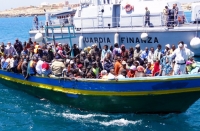
Florian Westphal is the chief of the German section of Doctors Without Borders
2015/08/07The 28-country European Union has told member states that expressing regret over the new migrant tragedy was no substitute for action. Some 200 migrants were feared drowned at the same time as their vessel sank off the Libyan coast.
One NGO helping to save shipwrecked migrants in the Mediterranean Sea is the medical charity Doctors Without Borders. DW has been talking to the chief of their German section, Florian Westphal.
- AgricultureMore >
- Banking / InvestmentMore >
- CompanyMore >
- AZERBAIJAN: DESFA deal to be discussed in Greece
- Construction projectsMore >
- MONTENEGRO: Arab Company Set To Redevelop Montenegro Beach
- EnergyMore >
- IndustryMore >
- LogisticMore >
- Real EstateMore >
- Stock Market / FinanceMore >
- PORTUGAL: Portugal PPI Inflation Slows Further
- WasteMore >
- Agribusiness / FoodMore >
- Art / CultureMore >
- Business / TradeMore >
- MONTENEGRO: Go West, VP Pence tells Balkan leaders
- Construction / InfrastructureMore >
- BOSNIA AND HERZEGOVINA: The bridge which currently connects Bosnia and Croatia in Gradiska
- EducationMore >
- EnvironmentMore >
- HealthMore >
- BULGARIA: Sofia, capital of Bulgaria.
- Local GovernmentMore >
- Petroleum / Mining More >
- Social / CSRMore >
- TourismMore >
- Southern Europe News
-
- ITALY: Italy Current Account Surplus Grows In June
- PORTUGAL: Portugal PPI Inflation Slows Further
- GREECE: Greece Current Account Surplus Falls In June
- SLOVENIA: Slovenia Output Prices Rise Further In July
- ITALY: Italy to send new ambassador to Egypt year after recalling ex-envoy
- ITALY: Italy seizes NGO rescue boat for allegedly aiding illegal migration
- Trending Articles
-
- BOTSWANA: Bill Gates sees US likely to maintain aid levels for Africa
- NIGERIA: The city that won't stop growing, Lagos
- EUROPEAN UNION: UK seeks to 'align' with EU on data protection rules
- ANGOLA: Buhari Among African Presidents Who Lack Faith in Own Health Systems
- PAKISTAN: Qatar launches new direct sea route to Pakistan
- BOTSWANA: Africa’s economic growth in 2016 was driven by East Africa







